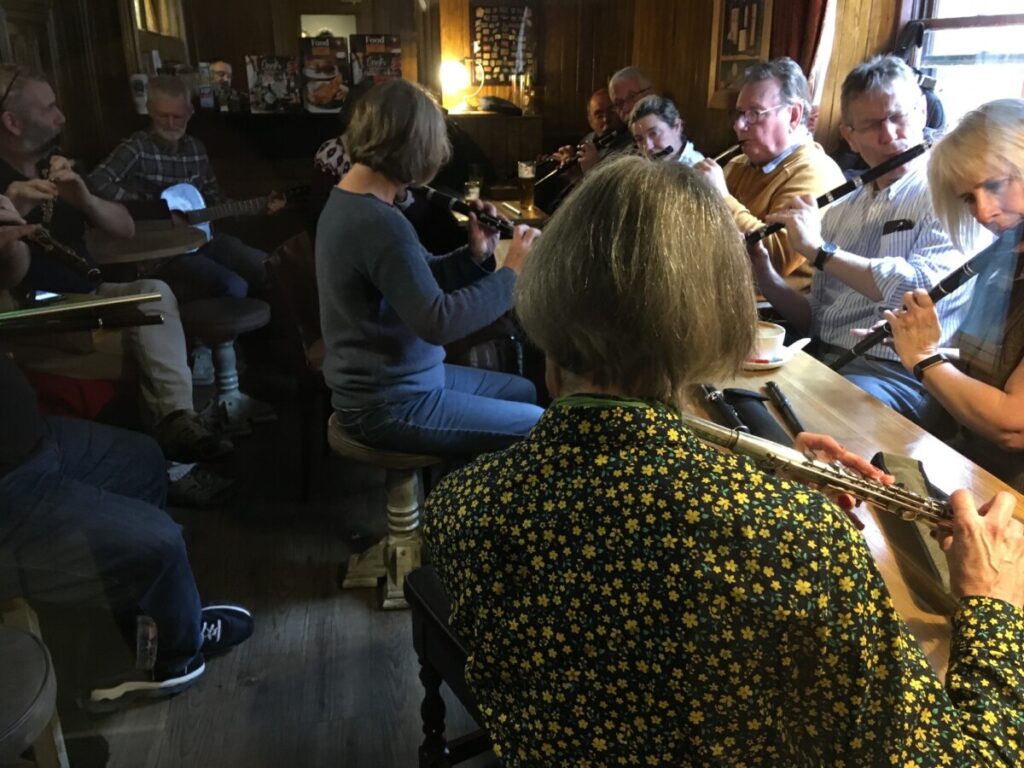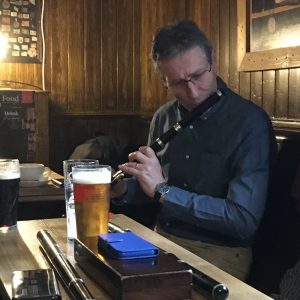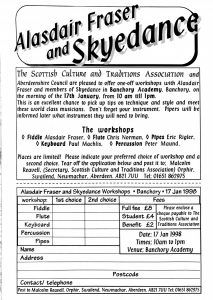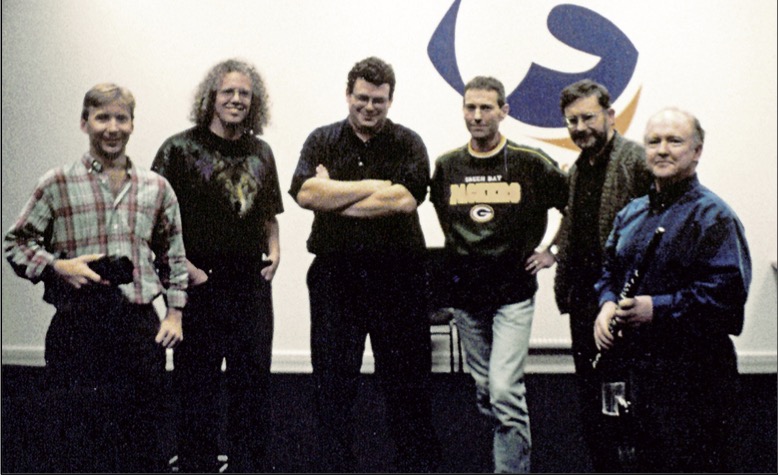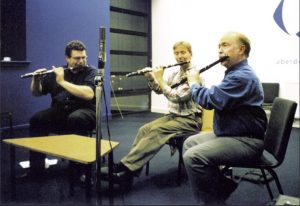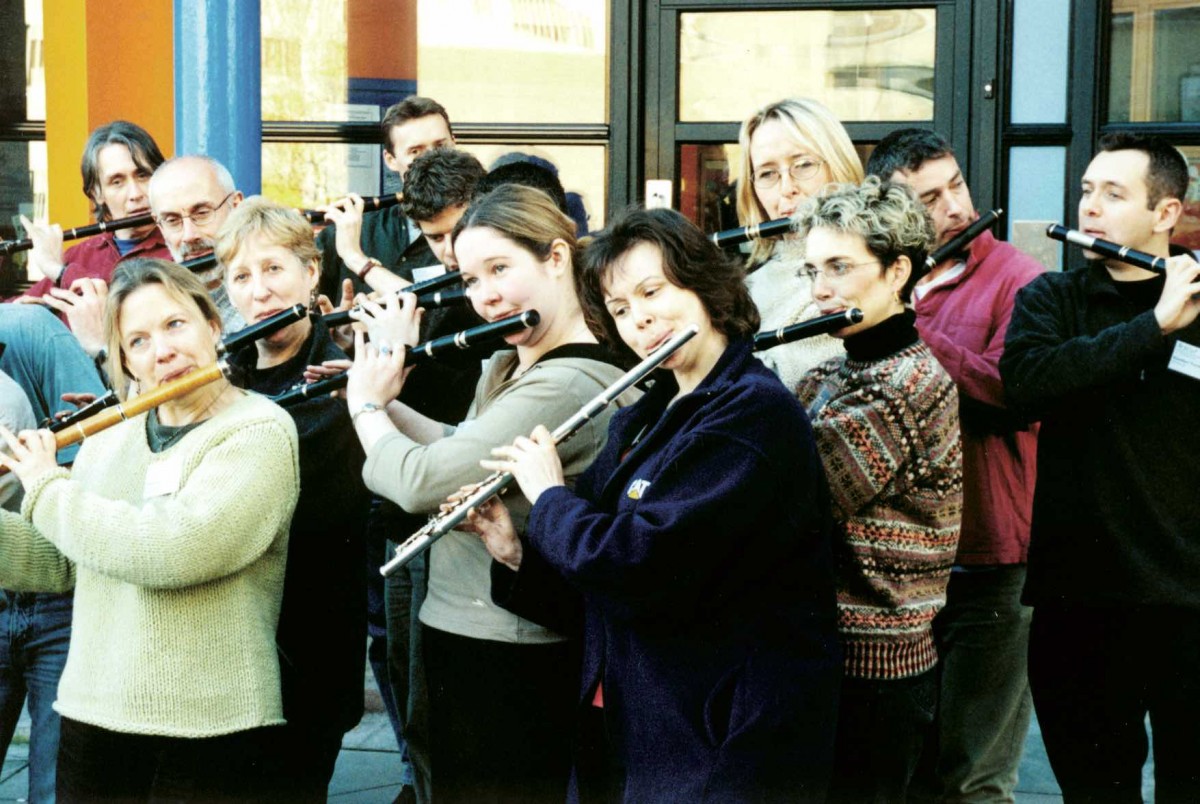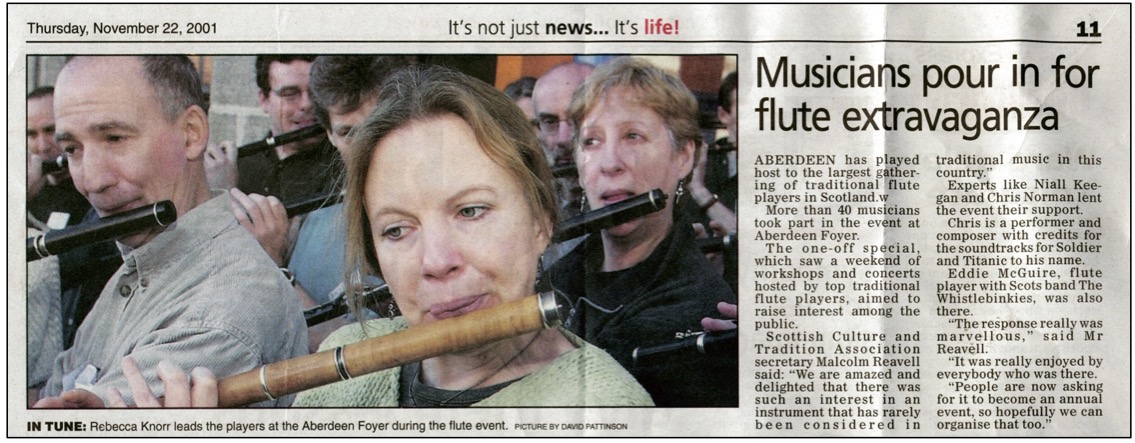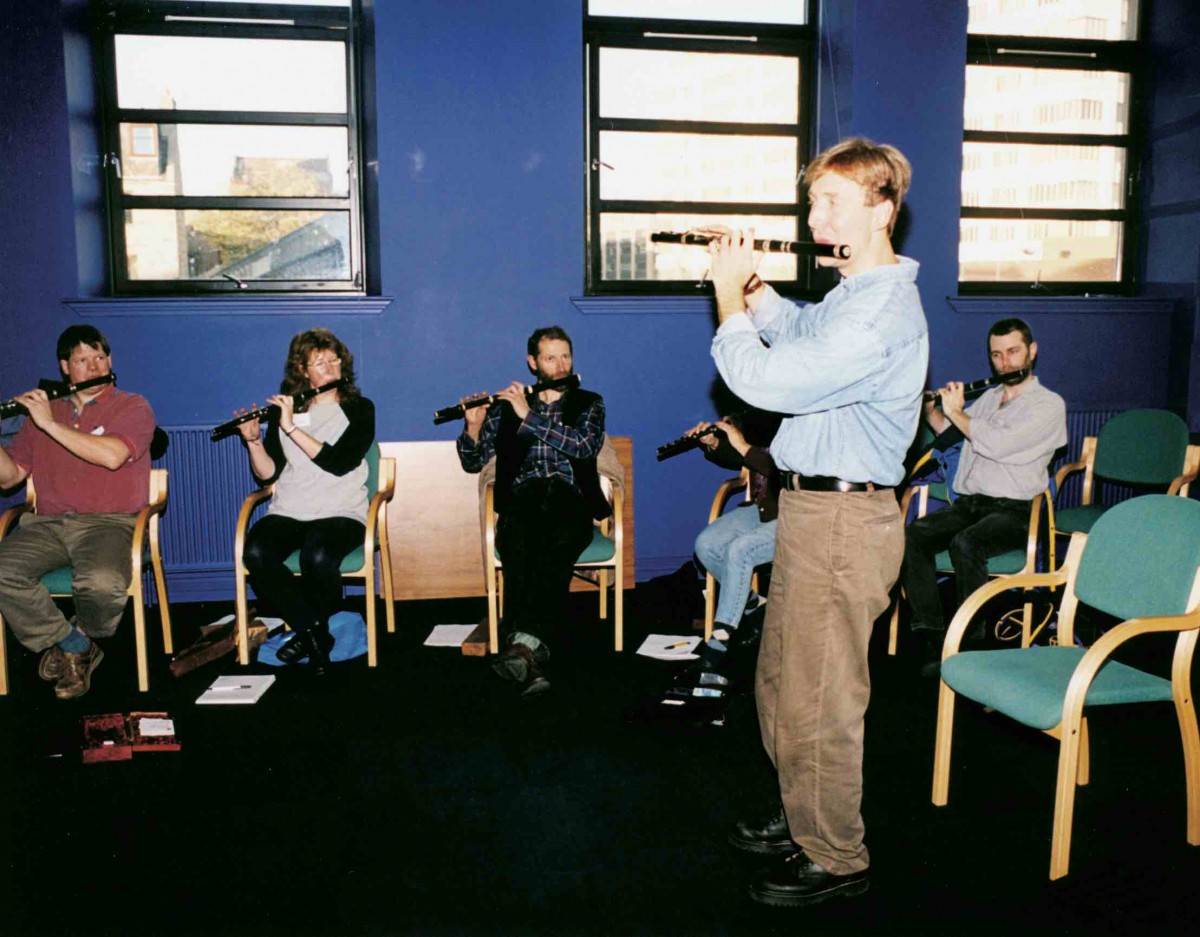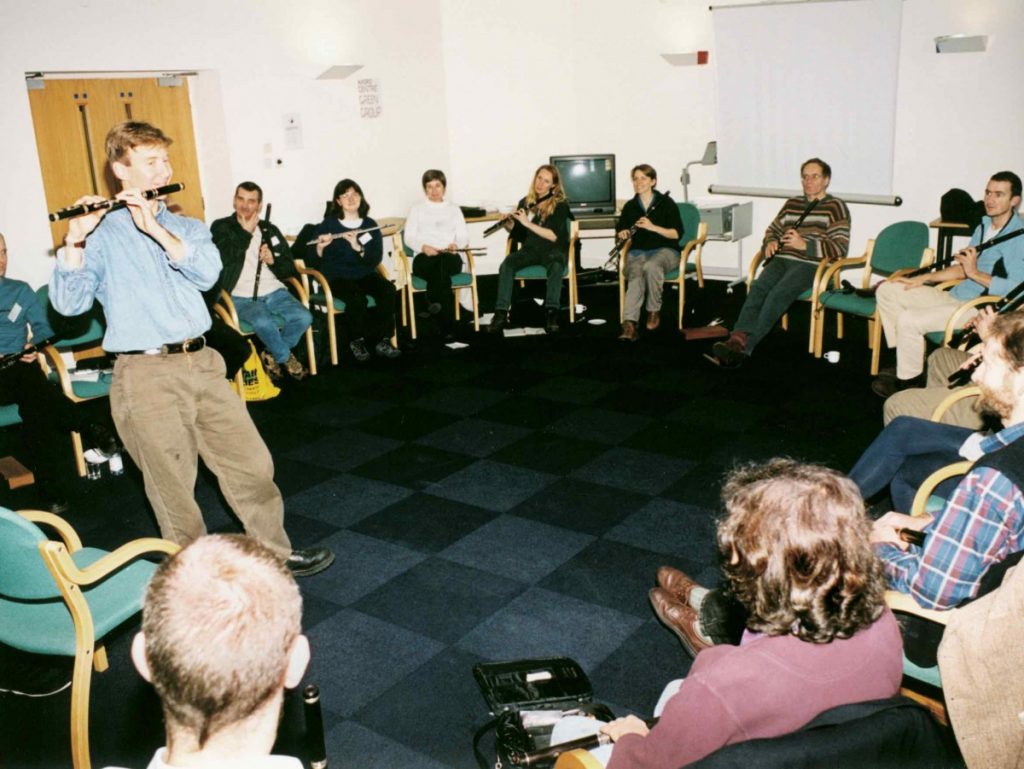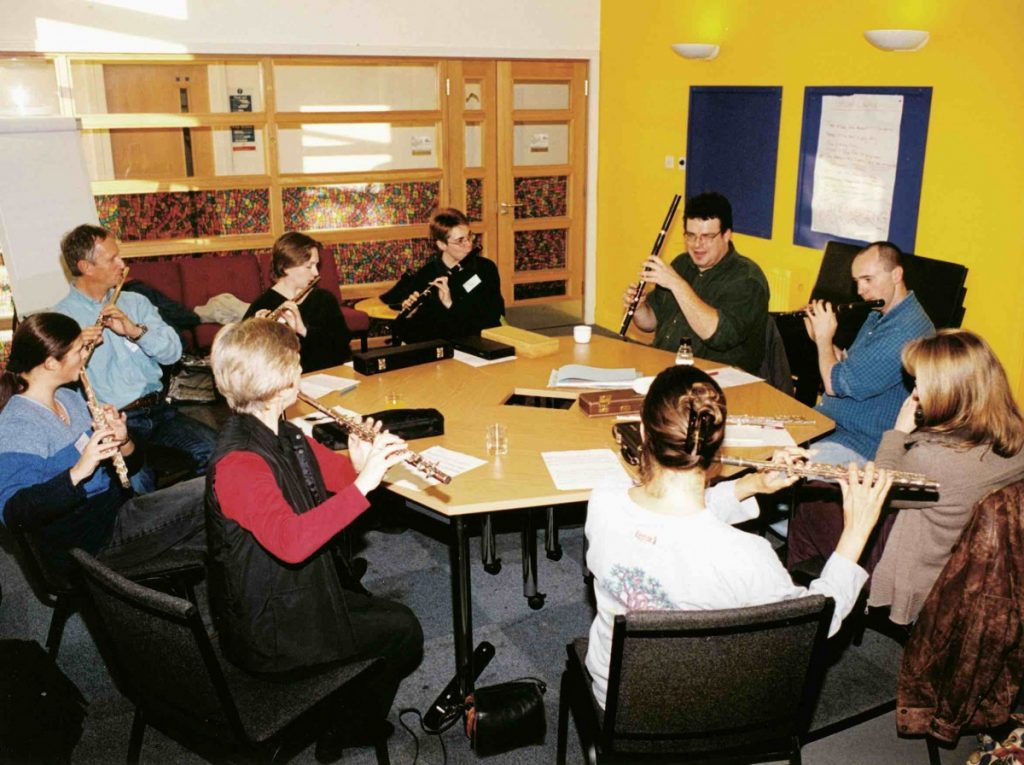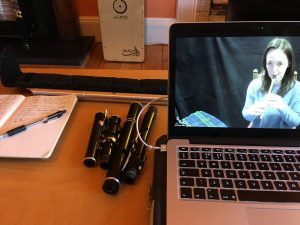FluteFling NE Tunebook Project: 03 PM Donald PM Donald MacLean of Lewis/ Bonawe Highlanders
This third video of the NE Scotland Session Tunes Project features 6/8 pipe marches for the Highland bagpipes.
For background to the project of 10 sets of tunes being recorded over 10 weeks, and to see the first video, start here. Alternatively, go straight to the videos on my Youtube channel.
You can download the free PDF of the sheet music here:
FluteFling Aberdeen 2019 NE Scotland Tunes
6/8 Pipe March Set
This third video in the series features two Highland pipe marches from the FluteFling NE Tunebook of Scottish session tunes for flute and whistle. I play these on my Burke whistle in D.
These tunes are often mistakenly referred to as jigs due to being in 6/8 time, but they are marches and should be played at a regular, steady pace, not too brisk, but brisk enough to invite moving purposefully. These types of tune are also often played for particular ceilidh dances and that’s what I have in mind as I play them.
PM Donald Maclean of Lewis was written by Donald McLeod, a composer of many fine tunes for the Highland pipes. It’s a finely constructed four part tune where parts 2 and 4 are closely related to each other. G is natural in this tune, which helps it to fit nicely under the fingers. As in all of our sets so far, an octave jump features, this time A-a. On the whistle, you may find that tonguing the higher note will help to make it clearer.
PM refers to Pipe Major, which is a role in a pipe band and not to be confused with a military rank. There’s a celebration of Donald Maclean and Donald MacLeod at the Piping Press web site.
There is some dispute about the authorship of The Bonawe Highlanders, which was composed by David Bowman, but some sources give PM John MacColl. See this discussion on The Session and the links given to other discussions, and also the reference on The Traditional Tune Archive. In this case I am going with David Bowman, which is backed up by several other websites. As always, treat any information on the web with caution and compare with other sources. I can find no information about David Bowman unfortunately.
The tune itself is firmly in A but features G# in just one phrase that occurs in parts 2 and 4. Part 4 also has G naturals that contrast with the G#. In Part 3, paying attention to the construction of the repeated rhythmic, hypnotic phrase will help the syncopation pop out of the melody. The tune features a Scotch snap — a dotted phrase characteristic of Scottish traditional music (see Wikipedia to learn more). It’s a sure sign that you’re playing the tune too fast if it can’t be heard or played clearly.
Bonawe is on the shores of Loch Etive in Argyll and is the historic site of an early iron furnace. In an Aberdeen session, I was the only person not playing this tune, so I’m glad to have finally learned it.
Ten weeks of videos
Over a 10 week or so period, I am recording and uploading to YouTube a set of tunes from the PDF roughly once a week. The aim is to introduce the tunes, point out some techniques along the way and then play them as a set as I might play them in a session.
As I go along, I’ll take in suggestions to improve the sound and presentation and get back into the way of teaching again. There is an in-built slow down function in YouTube and the PDF is available to everyone, so why not join me on the journey?


